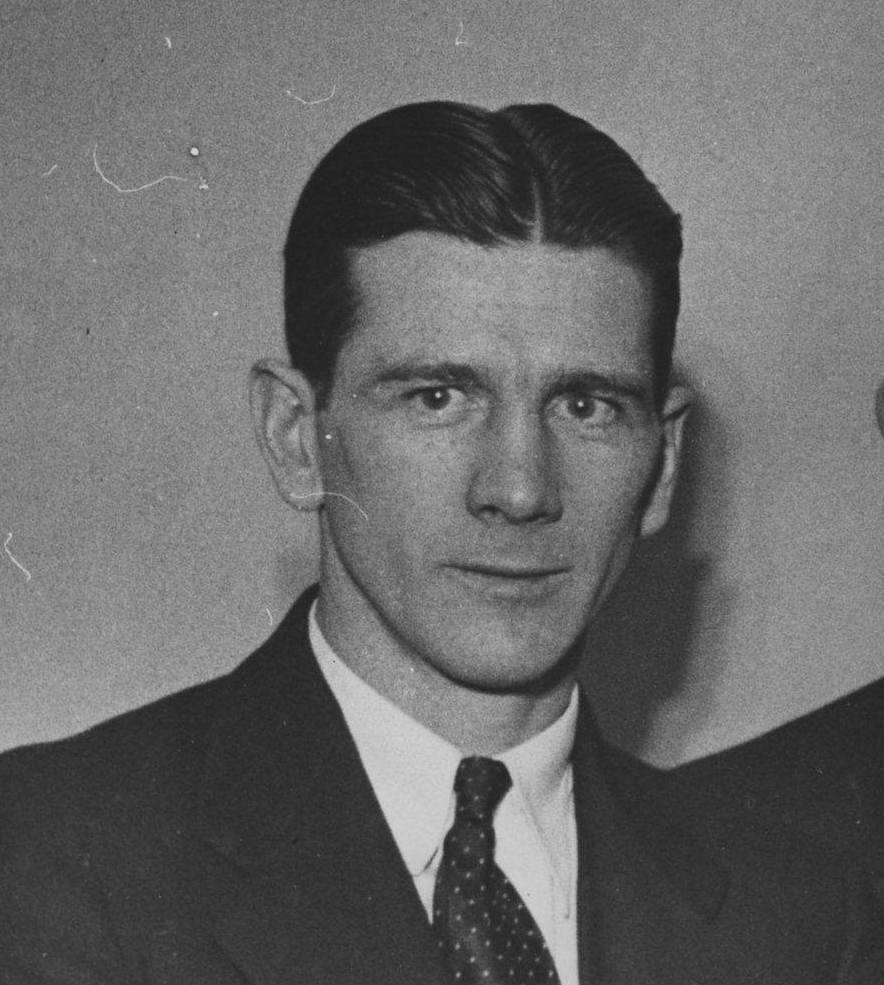
Family of Elmer Layden
2019 Legacy Award
For Elmer Layden, life was like a series of track-and-field events. Well-prepared with ample practice and focus, he went to the starting line and when the gun went off, gave the very best of himself to the challenge at hand. More often than not, he came home a winner.
From star athlete to successful coach to ground-breaking administrator, Layden’s life in athletics was one in which he achieved a standard of excellence, made countless friends and positively influenced many lives.
Because of that, his descendants—primarily his seven living grandchildren—are working to preserve his legacy, tell his story, and gain for “Gramps” the recognition he deserves as an important figure in the history of football.
His story began in Davenport, Iowa, where Elmer was a distinguished all-around athlete. At the famous Drake Relays in Des Moines, Elmer and his older brother teamed with two classmates to set the high school record for the half-mile relay. He went on to Notre Dame, where he was a homesick freshman trying to make his way amid the challenges of academics and athletics.
But as a sophomore, Elmer made the varsity football team, and when the starting fullback was injured, Coach Knute Rockne turned to the 162-pound Layden and told him he would be the starter, a lighter, quicker fullback than was traditional. Elmer took to the role, and by the latter part of the 1922 season, he teamed with Harry Stuhldreher, Jim Crowley and Don Miller to create a formidable, versatile backfield which would gain the famous moniker “The Four Horsemen.”
Their precision and teamwork befuddled opponents, and Notre Dame only dropped one game in both 1922 and 1923. In 1924, the Irish were unstoppable, steamrolling opponents en route to a 10-0 record and the school’s first consensus national championship. Layden played a key role, including earning MVP honors in the 1925 Rose Bowl by returning two interceptions for touchdowns to lead the Irish past Stanford, 27-10.
Like so many of Rockne’s players, coaching was next for Layden. He started at Columbia College in Iowa (today’s Loras University) and advanced to Duquesne in Pittsburgh, where he led the Dukes to their greatest period in football, including a 33-7 thrashing of the Miami Hurricanes in a 1933 bowl game that would be renamed the Orange Bowl in 1934. Notre Dame, meanwhile, was struggling in the aftermath of Coach Rockne’s death in 1931, and turned to Layden to lead the Irish, starting in 1934.
Over the next seven seasons, playing many of the best teams in the land, Layden’s Irish compiled a mark of 47-13-3 for a .770 winning percentage. No victory was bigger than the game at Ohio State in 1935, later dubbed “The Game of the Century.” Trailing 13-0 in the fourth quarter, ND rallied for three TDs and an 18-13 victory in one of the greatest comebacks in school history.
In 1940, Layden accepted an offer to become the first full-time commissioner of the NFL and guided the league through the turmoil of World War II, setting the stage for its rise to prominence in the post-war years.
Elmer Layden became a charter member of the College Football Hall of Fame in 1951. His family is working to gain his induction into the Pro Football Hall of Fame as a builder of the sport.
Donate
Support the work of the Knute Rockne Memorial Society with a tax-deductible donation today.
Subscribe
Join our email list to receive the latest news and posts from the Knute Rockne Memorial Society.
